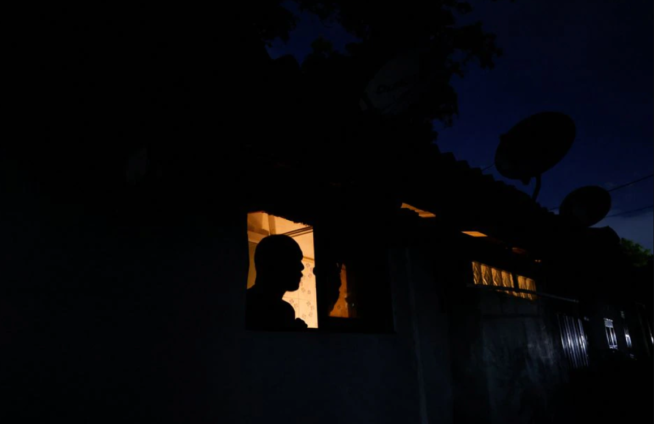A research and policy analyst at the Institute for Energy Security (IES), Xatse Derick Emmanuel, has clarified that Ghana's ongoing power instability, known as ‘dumsor’, predates the current gas supply challenges announced by WAPCo.
According to Mr. Xatse, the country has been dealing with a power generation deficit of approximately 600 MW since the start of the year.
His comments come in response to a joint statement by the Ghana Grid Company (GRIDCo) and the Electricity Company of Ghana (ECG), which announced a three-week interruption in power supply due to a reduction in gas supply from Nigeria.
GRIDCo and ECG attributed the intermittent power supply to maintenance work by a Nigerian gas supplier, which has led to a decrease in overall power generation capacity in Ghana, necessitating load management during this period.
However, Mr. Xatse emphasized that most of Ghana’s thermal plants are capable of operating on alternative fuels such as Light Crude Oil, Heavy Fuel Oil, or Liquefied Petroleum Gas.
He noted that only the Sunon-Asogli Power and AMERI plants are entirely dependent on natural gas.
With sufficient financial support, Mr. Xatse stressed that, these thermal plants could potentially meet and even exceed Ghana's peak power demand, thereby mitigating the impact of the current gas supply challenges.
“From January 2024 to June 4th, 2024, Ghana experiences a 'dumsor' of about 600 MW. With the new development, WAPCo has announced a gas supply challenge, causing ECG and GRIDCo to issue a joint press release, the end effect is that Ghana will experience more dumsor, meaning there will be a deficit in power generation beyond 600 MW. The other good news is that the thermal plants can operate on Light Crude Oil (LCO) or Heavy Fuel Oil (HFO)."
“Apart from Sunon-Asogli Power (SAPP) and AMERI, which rely only on Natural Gas, the rest operate on either HFO, LCO, or LPG. Therefore, with proper financial capacity, Ghana should be able to generate enough power to meet its peak demand. Ghana has an installed generation capacity of 5,194 MW, excluding embedded generation, which correlates to a dependable capacity of 4,756 MW. This means that Ghana should be generating enough power to exceed its peak demand.
“… In conclusion, ECG and the government should not ascribe the dumsor to WAPCo’s gas supply challenges because we have already been generating power at a deficit of 600 MW even though WAPCo’s gas supply challenges will worsen the dumsor situation, but not when the majority of the thermal plants can operate on either HFO, LCO, or LPG in place of Natural Gas,” an excerpt of the statement said.
Latest Stories
-
‘Flawed from the start’ – Martin Amidu dismisses Supreme Court ruling backing Majority Leader
24 mins -
Afenyo-Markin’s bended knees recall plea insulting to electorate, waste of public funds – Martin Amidu
1 hour -
Martin Amidu: The majority leader’s memorandum to recall Parliament is needless now
2 hours -
Parliamentary disruption is a self-inflicted wound – Speaker’s lawyer criticises Supreme Court plaintiff’s actions
2 hours -
Seeds are more expensive than gold – Netherlands Ambassador calls for collective action on Agrobiodiversity
2 hours -
Grandad Sings: The 92-year-old TikTok sensation
3 hours -
‘No-one will win’: Canada, Mexico and China respond to Trump tariff threats
3 hours -
Kenya less open to visitors despite visa-free policy – report
3 hours -
New Mauritius PM has reservations about UK’s Chagos deal
3 hours -
Trump picks Covid lockdown critic to lead top health agency
4 hours -
Drake takes legal action over Kendrick Lamar’s Not Like Us
4 hours -
We’re too boring for kids for social media ban – LinkedIn tells court
4 hours -
Celebrating Prempeh, the Asantehene banished by the British
4 hours -
Nigeria boat accident leaves five dead, 20 missing
4 hours -
Election 2024: We trust EC to uphold democracy – Ghanaian Hungarian Business Council
5 hours

